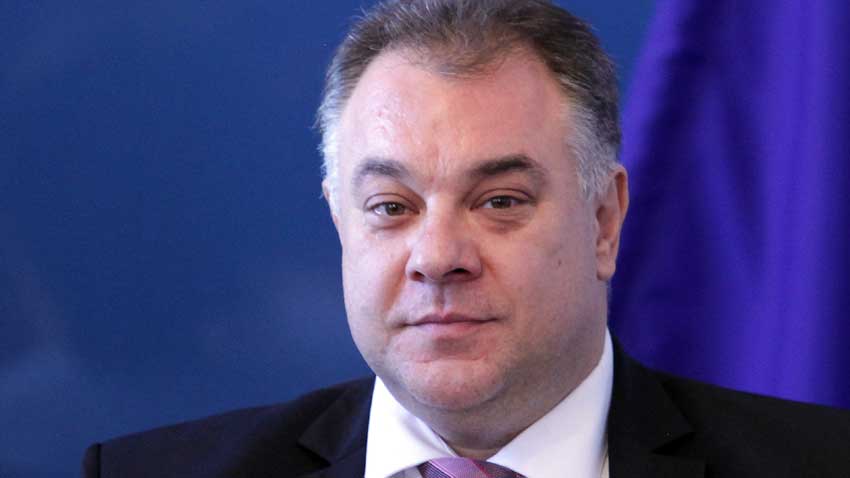The caretaker Minister of Healthcare Dr. Miroslav Nenkov has announced that there must be clear instructions to which hospitals patients should be transported, no matter whether there is an emergency case or it is a matter of invasive cardiology. For this purpose ambulances and hospitals will be keeping frequent contacts, in order to know the number of available hospital beds.
"The plan for development of emergency health services in Bulgaria has yet to be discussed and for this reason we will begin tours in the country and will organize regional meetings," the Minister of Healthcare added. When it comes to people who died in the street, they will be transported by vehicles of the Alexandrovska Hospital in Sofia, it was reported.
Another important change concerns the length of the working days in the Sofia emergency center.
 "Other emergency centers in the country have a seven-hour working day. I am personally hesitating because this measure can lead to a slight increase in incomes but if the Salaries Fund became exhausted, this would end,” Minister Nenkov said. "Another issue stems from the current Labor Code in Bulgaria. If a person works part time, they do not have the right to work overtime for more than an hour. That is why doctors would not be able to work more than 8 hours a day.”
"Other emergency centers in the country have a seven-hour working day. I am personally hesitating because this measure can lead to a slight increase in incomes but if the Salaries Fund became exhausted, this would end,” Minister Nenkov said. "Another issue stems from the current Labor Code in Bulgaria. If a person works part time, they do not have the right to work overtime for more than an hour. That is why doctors would not be able to work more than 8 hours a day.”
The minister pointed out that the work of the health ministry will be hampered if money from it is transferred for the update of the budget of the National Health Insurance Fund (NHIF).
Speaking about procurement procedures organized in the last days in office of the administration of the Oresharski Cabinet, the Health Minister announced that they have already been stopped. They total 25 million levs, as 12 million would have been used for e-Health development; 5 million would have been spent for construction and repair works in emergency centers and 8 million were allocated for buying medical equipment. Separately another contract worth millions of levs for the purchase of supplies for donated equipment for blood tests was signed.
The e-Health project has been halted because a check run by Dr. Nenkov revealed that Germany offered free training in the sphere. Thus, Bulgarian doctors will be able to specialize in e-health services and then return to work in the country. The reason for the stopped 5 million levs for repair works in emergency centers in the country is that they are part of the local hospitals, which are municipal property. The Ministry of Healthcare has no right to spend money for repairing something it does not own.
Another problem in Bulgarian healthcare is the lack of medical personnel. According to data by neurosurgeon Dr. Emanuel Naydenov of the Young Doctors for New Healthcare Initiative, 96% of medics in Bulgaria, including students were willing to go abroad. That is why the average age of doctors in Bulgaria is 55 years.
Minister Nenkov told Radio Bulgaria what was needed in order to keep young doctors in this country.
"I am not sure if so many doctors truly want to leave Bulgaria but the ways to keep young medics in this country are good working conditions and more money! Opportunities for career and professional development are also good stimuli.”
English: Alexander Markov
The year 2024 was marked by political instability and confrontation - not so much over ideas for solving Bulgaria's long-standing governance puzzle, but rather over personal egos and individual agendas. This turbulent year shaped the political landscape,..
The clock on the facade of the State Puppet Theatre in Stara Zagora has long been a symbol of the city. It was set in motion in 1977 and is unique on the Balkan Peninsula. The theatre recently shared details about the clock on its Facebook page after..
"Every day, we should think about peace and the messages that politicians send,” journalist Tsvetana Paskaleva, who has been living in Armenia for 30 years, says. "The situation around us and in neighbouring countries is unstable and..
Novo Oryahovo is a village in north-eastern Bulgaria. It is located in a picturesque corner in the municipality of Dolni Chiflik - 2 km..
The Botanical Garden's Tropical Greenhouse will be open to visitors from 16 to 26 January, every day from 10 am to 4 pm. More than 30 varieties of..
Methodological assistance, teacher training, meetings and educational programs in Bulgarian language and culture for students – these are just some of the..

+359 2 9336 661
